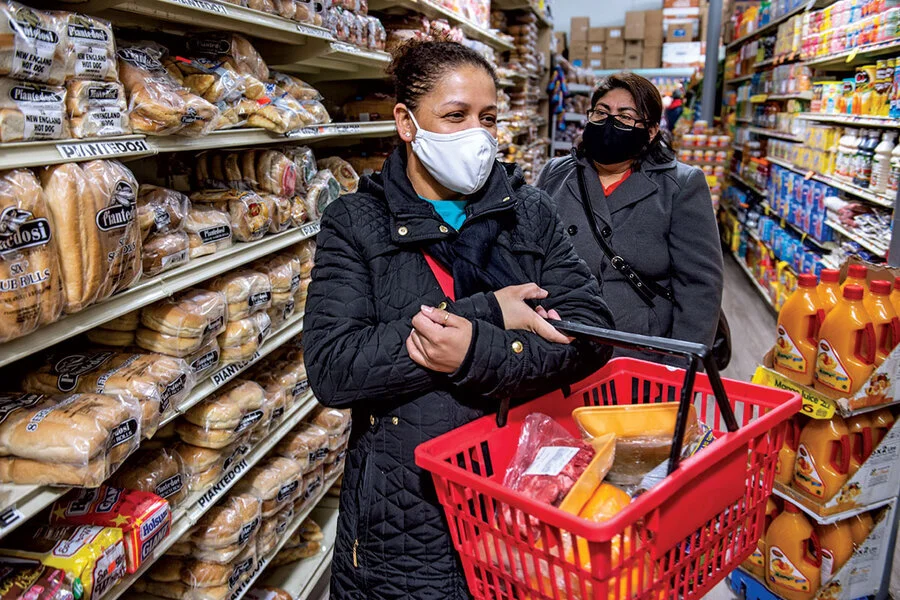In a Mafia Stronghold, This Cooking School Is Stirring the Pot
In a Mafia Stronghold, This Cooking School Is Stirring the Pot
By Agostino Petroni, Reasons to Be Cheerful, February 1, 2021
A few years ago, after Arturo Pratticò lost his 19-year-old daughter Elena in a car crash, he received a check in the mail — an unexpected payout from the insurance company. Pratticò, a fourth-generation farmer, cultivated bergamot citrus trees in the Calabria region of southern Italy. Food had always played a central role in his family, so he decided to use the money to help others share in his passion.
In 2019, he opened a cooking academy for young Calabrian residents. Billed as the first tuition-free cooking school in Italy, Pratticò named it Uno Chef per Elena e Pietro, in memory of Elena and Pietro, his grandson. But Pratticò’s school has a purpose that goes beyond teaching young people how to properly season a chili-pepper sauce or prepare traditional Calabrian fish stew. It is located in Bianco, an area that is the base for ‘Ndrangheta, the Calabrian Mafia, a violent organized crime syndicate that has long maintained a stranglehold on the region.
In Italy, food represents many things, and one of those things is an important source of funding for the Mafia, which launders money by buying land, harvesting crops and opening restaurant chains. Italian crime syndicates have been known to counterfeit olive oil and even steal herds of sheep. According to the country’s main farming organization, in 2019 Italy’s Mafias made about 25 billion euros from agribusinesses.
In Calabria, the state itself is, to some degree, an extended arm of the Mafia. Every year politicians linked to the criminal organizations take office at all levels of government. Further emboldening ‘Ndrangheta is the fact that the region holds few opportunities for young people — in 2019, youth unemployment in Calabria was a staggering 53 percent. For this reason, youth here often emigrate to northern Italy or abroad.
Pratticò believes that ‘Ndrangheta advances because if the state is absent, another institution will take its place. Uno Chef per Elena e Pietro could help fill that role. Photo courtesy of Uno Chef per Elena e Pietro
Those who can’t often end up working for criminal organizations out of necessity. “[‘Ndrangheta] advances because if the state is absent, another institution will take its place,” says Pratticò. The Mafia is one such institution — and now, Pratticò’s school is another. Uno Chef per Elena e Pietro takes a classic crime diversion tactic — diverting at-risk youth toward better alternatives — and gives it a distinctly local flavor that capitalizes on Italy’s culinary history. “We need to take back hold of our territory with culture,” says Pratticò.
Providing a new passion
Uno Chef per Elena e Pietro is housed in what was once a dilapidated 1920s villa in the center of Bianco, which Pratticò bought and refurbished. Vibrant pink paint now covers the building, while inside a classroom outfitted with state-of-the-art technology sits adjacent to a large industrial kitchen at the heart of the building. On November 1, 2019, the school opened to its first nine students, marking the beginning of a quiet crusade in a downtrodden region to reduce inequality, fight injustice and reject the toxicity of organized crime.
Crushed by negative news?
I’ve experienced this toxicity firsthand. I grew up in Puglia, the region adjacent to Calabria. In 1997, my father sent my brother, my mother and me to Tuscany — an extended summer vacation, he told us. The real reason for our exile, he revealed years later, was that criminals had threatened our family for my father’s refusal to pay a monthly tribute to the local crime group. While we were away, members of the syndicate cut down thousands of our newly planted olive trees, destroyed a vineyard about to be harvested, burned a boat we had in storage and placed a bomb in our house. After a long struggle to gather evidence, the police arrested the extortionist, and he hasn’t bothered our family since. But many others in southern Italy haven’t been so lucky.
Usury and extortion affect about 40,000 entrepreneurs in Calabria. In the past 50 years, ‘Ndrangheta has murdered at least 300 people in the region, including those who chose to call out the injustice. In the 1970s, ‘Ndrangehta specialized in extortions and kidnappings — in 1973 they earned international notoriety when they kidnapped Paul Getty III, grandson of the world’s richest man at the time. In recent decades, the crime group has extended its reach into the rest of Italy and 30 other countries. Today, ‘Ndrangheta is the only Mafia with operations on five continents. Yet, it has not given up on its control of Calabria.
When Pratticò approached Silvio Greco, a marine biologist and professor of environmental sustainability at the University of Gastronomic Sciences, to help him build his school’s curriculum, Greco accepted immediately. A Calabrian himself who had left his hometown in 1976 because there were no good universities to attend, Greco was well aware of the absence — and the need — for educational institutions to give young people a fighting chance in ‘Ndrangheta territory.
According to Greco, learning the art of cooking and baking fulfills that need by empowering a young Calabrian with the skills and experience that can help them make a living. He convinced other professors at the University of Gastronomic Sciences to join him to teach for free at the school, and designed a nine-month intensive course that teaches students not only how to cook, but how to look at food holistically. At Uno Chef per Elena e Pietro, classes include visits to local producers, where students learn the origins of the ingredients they’ll use in their creations. They spend time managing the school garden, touching the earth with their bare hands and learning how to grow fruits and vegetables, even if they’re destined to work in a restaurant’s kitchen.
“The students who are selected to be part of the school are mostly unemployed, and therefore easy prey to criminal organizations,” says Greco. “Every kid who is taken out of the street, and welcomed at the cooking school, is labor subtracted from the Mafias.”
The school’s holistic approach steers the students away from a life of crime not just economically, but culturally as well. “I hope that they will all come out as citizens and as better humans,” says Bruno De Francesco, owner of Calabria’s Zenzero restaurant and head chef at the school. He says that the goal is not just to create chefs, but to help students find their path in life by immersing them in ecology, chemistry and history through the complex worlds of food and wine. In De Francesco’s view, while cooking is the school’s official curriculum, it’s true mandate is to inspire. “Maybe one of them will become passionate about chemistry, will go to university to study it, and maybe one day will become a professor,” he says. Before every class, De Francesco makes them read a chapter of an inspiring book. (When we spoke, his students were reading The Little Prince by Antoine de Saint-Exupéry.)
In this way, Uno Chef per Elena e Pietro is mimicking crime diversion strategies that have succeeded in reducing gun violence in many American cities — but with a discernibly Italian culinary twist. Such strategies take a community-based, non-policing approach to preventing crime by intercepting those likely to become involved in it and priming them for better alternatives.
The model has proved highly effective. For instance, in Chicago, an organization called CRED recruits at-risk youth and helps them build careers through free education, mentorship and job training. In the neighborhood where CRED operates, shootings in 2020 dropped by 33 percent even as they rose by 51 percent citywide. Another program in Richmond, California offers what it calls the Operation Peacemaker Fellowship, which provides job training and guidance to youth at risk of joining gangs. A recent study found that gunshot wounds and killings have fallen by 55 percent in Richmond since the program began.
A recipe for justice
Filippo Misitano, a 19-year-old from Bianco, was one of the original enrollees at Uno Chef per Elena e Pietro. He grew up cooking with his grandmother Rosa and later attended a culinary high school. After graduating, he began training in a restaurant in Rimini, but because of a health issue he had to return home to Bianco.
Uno Chef per Elena e Pietro continues a long Italian tradition of combating social problems through food. Photo courtesy of Uno Chef per Elena e Pietro
“After my health problem, I wanted to abandon cooking, but thanks to the school I started believing in it again,” Misitano says. When he heard the school opened in his hometown, he was immediately interested — he’d never heard of a higher education institution in his area. He turned out to be one of the best students of that year and was selected for an internship with the cooking team at Eataly London, the world-renowned supermarket and restaurant chain. Misitano is looking forward to the new experience, but once it’s over he plans to return to Bianco to open a restaurant.
Maria Antonietta Galletta is another student who hopes to use her training to uplift the city. Twenty-six years old, she once dreamed of attending the University of Gastronomic Sciences. But tuition costs were out of her family’s reach — cooking schools in Italy often cost upwards of 14,500 euros a year. So she decided to study law at a public university in Rende. In a country overcrowded with lawyers, when Galletta graduated this year she was about to begin 18 months of unpaid practice in a law firm. The pandemic cancelled her plans.
Galletta grew up accompanying her father to his farming plot in Sant’Agata di Bianco, where she would help him plant broccoli, harvest tomatoes and make olive oil for the family. When she heard of the chef’s school in Bianco, she applied and was selected as one of 60 applicants to be part of the school’s second class.
“I love cooking, but my dream is to combine my passion for justice with the food sector in general,” Galletta says. “[‘Ndrangheta] is a reality we are accustomed to thinking that exists only here, and we have almost become numb to it. We have the possibility for a change, but we must want it.”
Galletta, like Misitano, plans to put her newfound skills to use in Calabria. “Why should I leave my father to plant broccoli alone?” she says. “It’s not fair. Just thinking about it makes me mad.”
Cuisine for the people
While Uno Chef per Elena e Pietro may be unique in its location and tuition-free model, it continues a long Italian tradition of combating social problems through food.
In 1996, the Italian government ruled that properties confiscated from the Mafia should be used to benefit average Italians — it now turns them over to non-profit organizations. Don Luigi Ciotti, a 75-year-old priest and founder of Libera, one such non-profit, helps locals repurpose these properties, which they use to harvest olives, make wine and bake bread.
One initiative that grew out of Libera is the Cooperativa Placido Rizzotto in Sicily, which employs marginalized women and teaches hundreds of teenagers with pending criminal charges how to plant a garden. According to Ciotti, Libera’s network — 461 organizations strong, 162 of which are in Calabria — employs more than 1,000 people and empowers students in more than 4,500 schools to pursue a crime-free life.
According to a 2019 study by Sergio Rivaroli, professor of politics and agribusiness at Università di Bologna, Italians recognize and support the ethical value of “buycotting” — buying produce from Mafia-confiscated lands. (This past Christmas, many Italians gifted their loved ones food from formerly Mafia-controlled farms.) “Food has to be a tool for freedom,” Ciotti said in an interview — part of a process of economic, cultural, political and social liberation.
Massimo Bottura, chef and owner of Osteria Francescana — declared the world’s best restaurant in 2016 and 2018 and awarded three Michelin stars — embraced this process by creating Food for Soul, a non-profit organization that employs marginalized people to feed others in need with healthy and nutritious food. He opened one of the nine refectories in Naples, the heart of Camorra, the Campanian Mafia, which every week provides meals for about 100 families with food insecurity.
When something as basic to survival as food becomes a tool for exploitation, humans become vulnerable. Mafias fill the void left by a missing state by “helping” families with food allowances or money. But as with all support provided by these criminal organizations, nothing is given without something expected in return someday.
With the pandemic taking a toll in Bianco, the mayor Aldo Cantuli decided to fund Uno Chef per Elena e Pietro, which in turn will distribute food cooked during the classes to low-income locals. “I believe that the school, or any school, can be an antidote to ‘Ndrangheta,” says Cantuli.
All the people I talked to emphasized that Calabria is not only ‘Ndrangheta. It is indeed one of Italy’s most fascinating regions, and the Uno Chef per Elena e Pietro school might be a tool for many to remain in this wondrous area and create a future for themselves. As student Maria Antonietta Galletta said as she described to me the beauty of the sea and the Aspromonte mountains outside her window: “Why should I leave all this?”






